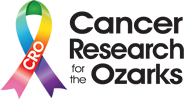ECOG-ACRIN EAQ221CD
This clinical trial compares the use of the connected customized treatment platform (CONCURxP), consisting of using a medication monitoring device called WiseBag along with text message reminders for missed or extra medication events, to enhanced usual care (EUC), where patients only use the Wisebag, to monitor medication adherence in patients with metastatic breast cancer who are taking a CKD4/6 inhibitor. To ensure CDK4/6 inhibitors achieve their full clinical benefit, patients need to take them as prescribed, following a complex treatment schedule. Forgetfulness was the most common reason reported for medication non adherence. Using the WiseBag along with CONCURxP or enhanced usual care may improve medication adherence in patients with metastatic breast cancer who are taking a CKD4/6 inhibitor.
ECOG-ACRIN EAQ222CD
This clinical trial evaluates the effect of Cost Communication and Financial Navigation (CostCOM) intervention on adherence to care and financial burden in cancer patients. Many cancer patients experience financial hardship due to high medical out of pocket costs (OOPC), changes in employment, income and insurance. Financial hardship can lead to a delay or a stop in cancer care, and is linked to poor quality of life. Financial navigation programs, such as CostCOM, provide financial counseling, education and connections to appropriate resources to reduce financial barriers to healthcare and minimize financial stress and burden. CostCOM may improve adherence to care and decrease financial burden in patients with cancer.
SWOG S1912CD
This clinical trial examines a financial navigation program in helping patients and their spouses understand and better manage the financial aspects of cancer care. Cancer patients and their spouses may be at high risk for financial problems because of the cost of cancer treatment. A financial navigator is a person or team who work with patients and their families to help them reduce stress or hardship related to the cost of cancer treatment. Financial navigators help patients understand their out-of-pocket expenses and what their health insurance plans may cover. Financial navigation may also help patients set up payment plans, find cost-saving methods for treatments, and improve access to healthcare services that the patient needs. Providing financial navigation to patients may help reduce financial worries and improve quality of life.
SWOG S2108CD
This clinical trial studies how well an educationally enhanced genomic tumor board (EGTB) intervention works to increase the number of patients with solid tumors that have come back (recurrent), do not respond to treatment (refractory), have spread to other parts of the body (metastatic), or are newly diagnosed and spread to other parts of the body (advanced) who receive genome-informed treatment. Genome-informed treatment refers to treatment based on the information found in genomic tumor test results. This study compares the usual approach to reviewing genomic tumor test results with the approach of having a genomic tumor board (GTB) review the test results. A GTB is team of doctors and scientists that have experience in understanding genomic changes and review genomic tumor test results. The tumor board helps to suggest whether there are other cancer treatment options based on patient genetic test results. The usual approach is to review genomic tumor test results without the GTB being involved. This study may help researchers learn if using a GTB enhances the treatment decision making process within 6 months of joining the study. This study may also help researchers learn if using the GTB increases doctors' understanding of genomic tumor test results and increases doctors' comfort level with genomic tumor tests.
URCC-18110CD
This trial studies the delivery of the ENABLE palliative care program by two different methods called a Virtual Learning Collaborative or Technical Assistance for patients with advanced cancer and their caregivers. Palliative care is specialized medical care for people with a serious illness that occurs at the same time as other medical treatment. The purpose of palliative care is to provide relief from symptoms and stress of serious illness, to help patients and their families clarify goals of care, and to focus on social support and spiritual well-being. The focus of the ENABLE palliative care program is on living well, managing stress, patient communication of their personal values and hopes for care, social support, and symptom management. This study may help doctors find the best ways to include palliative care services into their practices and the impact of palliative care on cancer patients and their caregivers' quality of life.
